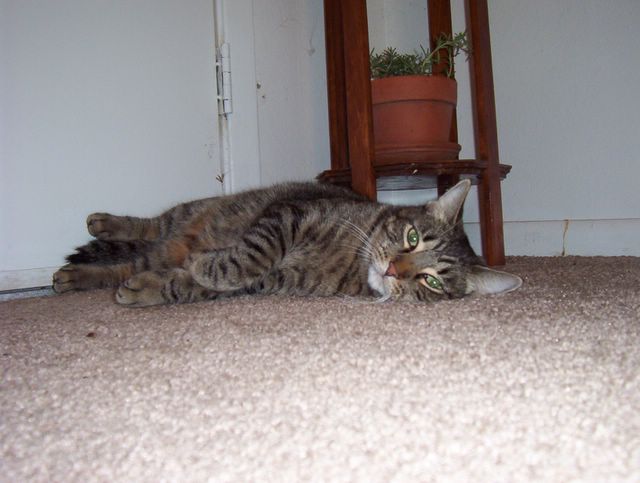In the midst of preparing for the holidays, please don't forget those who are still out there....
Luck runs out in 'Triangle of Death'
Unit commanders shared great responsibility, greater worries
By Cal Perry
CNN
Monday, October 31, 2005; Posted: 10:03 p.m. EST (03:03 GMT)
Editor's note: CNN producer Cal Perry is embedded with the U.S. Army's 3rd Armored Cavalry Regiment, 3rd Infantry Division, Forward Operating Base Falcon.
NORTHERN BABIL PROVINCE, Iraq (CNN) -- The two men were good friends at Forward Operating Base Falcon in Babil province, each commanding units at the base in what's called Iraq's "Triangle of Death."
Col. William Wood and Lt. Col. Ross Brown exchanged gifts recently, said Sgt. Kim Bradshaw.
He couldn't say what the gifts were, just the kind of things soldiers with great responsibility and even greater worries share on a battlefield.
That's why the events of October 27 hit so hard.
Northern Babil province is vast farmland divided by a series of canals with narrow roads running alongside.
The members of the 3rd Armored Cavalry Regiment patrol in Bradley fighting vehicles and Humvees, wary of the roadside bombs that have taken so many lives in Iraq, including those of four members of the 3rd ACR who died when an explosion knocked a Bradley into a canal.
Those were just four of the 14 deaths suffered by the 3rd ACR in 45 days during the summer.
On October 27, Brown led a patrol of two Bradleys and one Humvee along Route "Tampa," a highway in the sense that it is wider than the paths that pose the biggest danger for roadside bombs. "Tampa" links Babil province to Baghdad.
As he prepared the patrol that day, Brown asked his soldiers what they carry out with them for protection -- not meaning the usual flack jackets, Kevlar helmets, M-16s and grenades -- but pieces of so-called "luck" from home.
Among the pieces brought out -- a Bible, a folded prayer, pictures of loved ones, the patron saint of soldiers and the ever-present "charm" candy found in MREs (meals ready to eat).
Three bombs had exploded along the route the day before.
Shops line only one side of the road. They are tiny and poor -- hastily made of splintered plywood and nails, the better ones with an overhang for shade, all with little or no business to speak of. The business plan seems to be the hope that traffic will back up so much that frustrated motorists will stop by for a drink or a snack.
The makeshift shops had closed before the previous day's explosions, an obvious sign to Brown that the shopkeepers knew the attacks were planned.
As he talked to each shopkeeper -- making his way methodically down the road -- it became obvious that he was not going to get any answers to help protect his soldiers from further violence. Each shopkeeper told Brown they weren't present the day of the explosions.
Brown knew better. Bradshaw was among the responders a day earlier, and he had seen the shops were closed.
Brown walked back and forth with the owners, threatening to shut down the shops, all the while continuing to catch the shopkeepers in similar and equally questionable statements. Finally, he walked away from the shops and spoke to Bradshaw.
"How can I make them fear me more than the insurgency?" the commander asked.
This question is at the center of the problems faced by the U.S. military every day across Iraq.
Bradshaw responded, "They're all lying -- and they're scared to death."
"Of course," Brown said. "And they know that -- unlike the insurgency -- we're not going to take them out into the street and shoot them. They know we're here temporarily, and they have to live with these people forever."
Getting back in the Bradleys to move out of the area, Brown said he didn't know if he was going to shut down the shops.
"I need to think about it some more," he said, shaking his head in near disgust as he climbed back into his Bradley.
Brown is a firm believer that his men are making a difference in Iraq, that they are true heroes. But he's not without his superstitions.
Later that day, after much prodding, he begrudgingly brought out his personal pieces of "luck" that protect him on missions -- two personal notes from his son and daughter. In a small plastic bag, the note from his daughter reads, "come home ASAP."
Moments after Brown shared these personal items, the bad news came across the radios.
Wood had been killed about a kilometer south of Brown's position. Wood -- a regular Army officer assigned to command the 1st Battalion, 184th Infantry Regiment, a National Guard outfit from California -- was directing his men on a road that had been a bombing site moments earlier.
He was giving orders when his luck ran out. A secondary explosion killed him, blowing him backward into one of the canals.
At the time of his death, he did not know that he was about to be promoted -- from lieutenant colonel to colonel.
Wood was the highest-ranking U.S. officer to die in combat in Iraq
Subscribe to:
Post Comments (Atom)

No comments:
Post a Comment